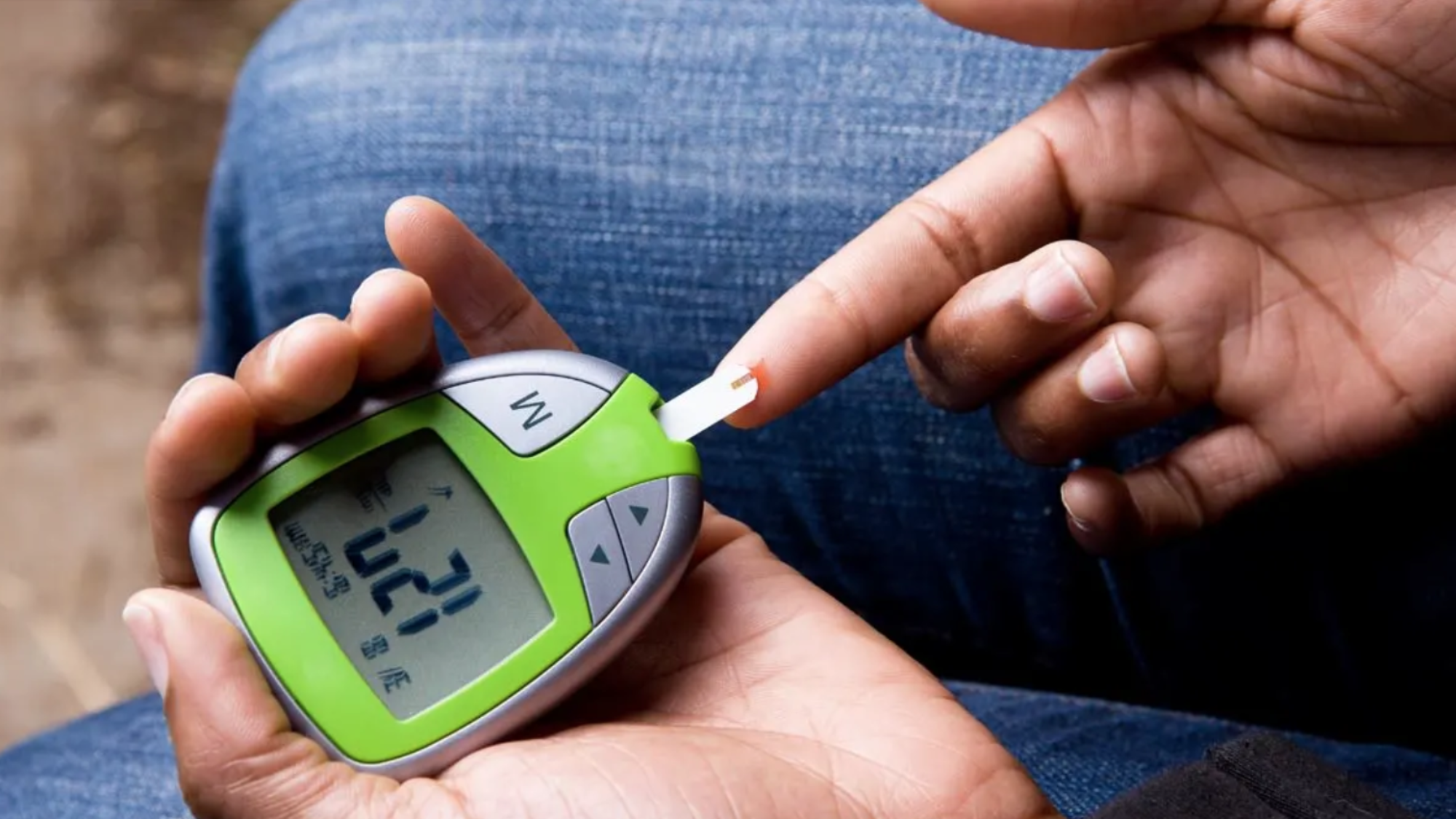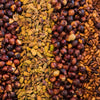Optimal Blood Sugar Reading on Keto: How to Test and Understand the Results

What is blood glucose?
Blood glucose is the amount of sugar circulating in your blood. Your blood sugar will rise and fall when you eat food. This is a totally normal process. But how high your blood sugar spikes can depend on the food you eat. A high-carb meal, for example, will spike your blood glucose much more than a low-carb, high-fat meal.Why does this matter? Higher than normal blood glucose levels can cause damage in the body, increasing the risk of diabetes and heart disease [1]. Doctors even use a blood glucose test to diagnose type 2 diabetes.
What’s the connection between blood glucose and ketosis?
The connection between ketosis and blood glucose is undeniable. When you’re eating a ketogenic diet, your blood sugar is regulated thanks to such a low daily carbohydrate intake.Blood glucose does not indicate whether you’re in ketosis, but it can be correlated with the ketone levels in your body.
It’s also an indicator of your insulin sensitivity, or lack of. This is why blood glucose levels are used as one of the indicators of developing type 2 diabetes, which is strongly tied to insulin resistance.
Ketones aside, properly testing your blood sugar will give you better insight into your body’s response to specific foods even more than a ketone monitor. This is because your blood sugar will respond faster to the food you’ve just consumed than your body’s ketones will.
Why should I test my blood glucose?
1. Personalized Nutrition Insights
Would adding beets to your dinner be too many carbs for your body to handle in ketosis? What about pumpkin, or berries, or those few squares of dark chocolate? What about if you ingest these higher carb foods directly after a rigorous workout? And how far can you really push your daily carb limit?All of these questions can be answered by testing your blood glucose.
Whether you want to experiment with adding in some post-workout carbs or feel like you might benefit from eating some starchy vegetables, testing your blood sugar can give you accurate insights on the best foods for your body.
2. Playing Ingredient Detective
You might have hit a stall in your weight loss, or suspect those non-caloric “keto-friendly” sweeteners (like xylitol) sound too good to be true. Rather than play the elimination game, test your blood glucose and see exactly how eating these ingredients affect you. Each person is different when it comes to blood sugar responses.3. Cheat Meal Recovery
You don’t need to test your blood sugar to know that a piece of lasagna chased down by a bottle of soda is going to kick you out of ketosis. But you can test your blood glucose to see how long it takes your body to come down from the blood sugar rollercoaster you just sent it on.This might seem slightly neurotic, but it can help you figure out how fast you can be back on your A-game. Or, it can be exactly what you need to see to realize that cheat meals aren’t worth it.
How do I test my blood sugar?
Blood glucose monitors are easy to find and relatively affordable, at least compared to blood ketone monitors. Unlike ketone monitors, blood glucose monitors provide a relatively immediate picture of how your body is responding to specific foods, meals, and activities, such as workouts. Exact instructions for testing vary by brand and included in the box.Consider testing your blood sugar at the same time as your ketones to get a more holistic perspective of what’s happening in your body. For instance, is that new low-carb protein bar going to keep you in ketosis without spiking your blood sugar? There’s really only one way to find out: Testing both ketones and blood glucose.
You can even use both of these readings to determine where you sit on the Glucose Ketone Index (more on that below).
When is a good time to test my blood sugar?
Unless you’re trying to test how your body responds to very specific things, such as a certain sweetener, there’s no rules on when you need to test. The rule of thumb is to measure at the same time each day. That will guarantee that your body is always in a similarly fasted state.What is an optimal blood sugar reading on keto?
Once you have your magic blood sugar number, you might be a little confused as to what it actually means in the context of ketosis.According to the Mayo Clinic, a fasting blood sugar level under 100 milligrams per deciliter is healthy. Your blood sugar following food (even ingesting pure sugar) should not exceed 125 milligrams per deciliter, as this is a sign of prediabetes. Use an online calculator to convert your milligram per deciliter and millimoles (mmol) per liter numbers.
In terms of what this means for ketosis, there’s something called the Glucose Ketone Index. Remember that correlation between blood sugar and ketones? This is how you figure that out.
This does require a blood ketone monitor. Simply divide your blood glucose number (milligrams per deciliter) by 18, then divide that number by your ketone reading. A reading of nine or less is correlated with ketosis.
One thing to keep in mind is to think of ketosis as an on or off switch. It doesn’t matter how “deep” in ketosis you are. All that matters is whether you are in ketosis or not.
In other words, don’t stress over equating certain blood glucose levels with being more or less in ketosis. It’s simply a tool to find out the nitty-gritty details.
What are factors that may impact my blood sugar reading?
Some of the things that can spike your blood sugar (and affect your reading) include:- Eating any food
- Certain non-caloric sweeteners
- Cortisol (stress)
- Lack of sleep
- Lack of exercise or activity
Similarly, there are a few things that can lower your blood sugar. These include:
Note: we do not recommend drinking alcohol to lower your blood sugar.How important is it to test blood sugar on keto?
Measuring blood sugar can be useful for those following a keto diet. But unless you’re diabetic, you don’t really need to do it. Think of measuring blood sugar as a tool, not a necessity. It should not be a priority unless you’re curious about it.Ever heard the saying, “chase results, not ketones?” There’s a lot of truth to it.
Don’t overcomplicate keto. Just keep your carbs low, your fats high, your electrolytes replenished, and enjoy the fat-fueled ride.
-
Posted in
Authority Article, Keto




